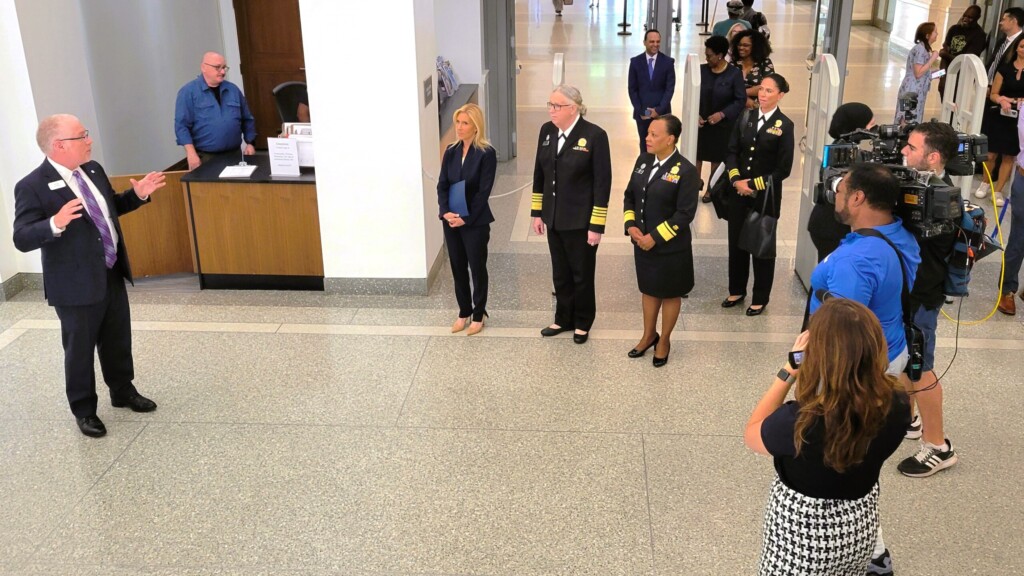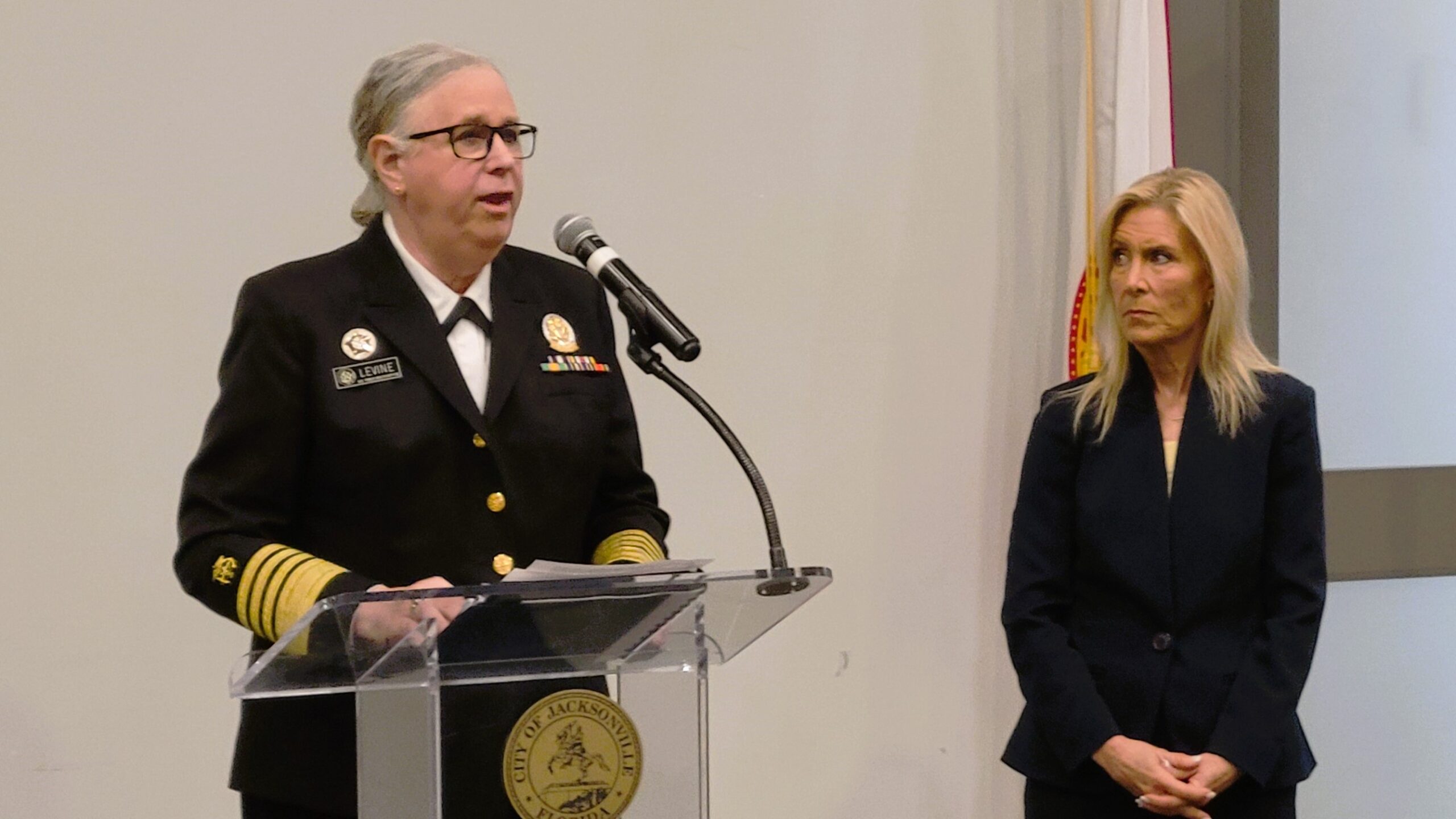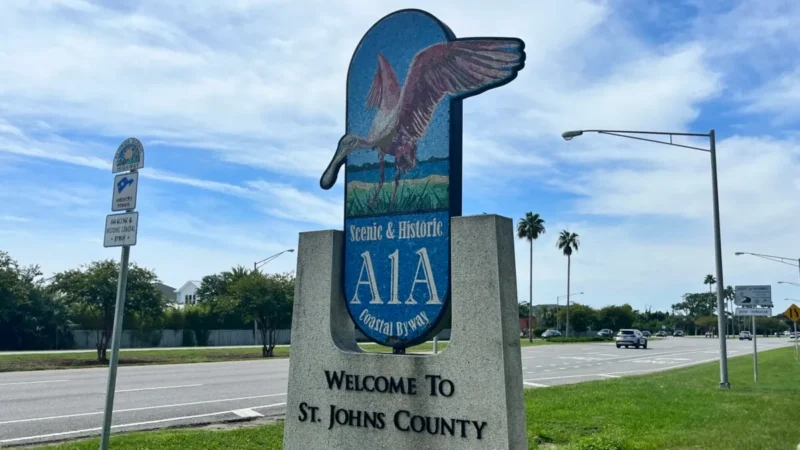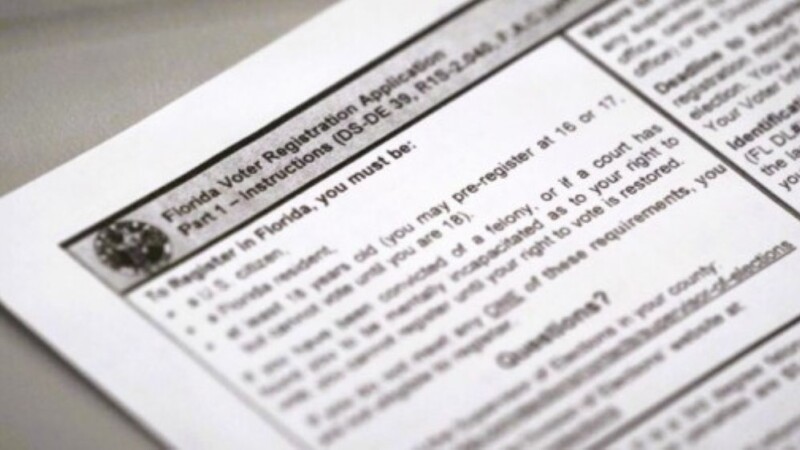Jacksonville’s libraries, community centers and public pools all will become cooling stations in a year of record heat that might only get worse.
A federal health official, visiting Jacksonville, warned Monday that even a blistering 2023 could be “the coolest year that we ever see.”
Adm. Rachel Levine, assistant secretary of health for the U.S. Department of Health and Human Services, joined Mayor Donna Deegan and her chief health and emergency officers to discuss the city’s response to extreme heat.
Levin was shown the Main Library’s Downtown lobby, art gallery and book areas where hundreds of people could seek refuge. She said the city is being “tremendously innovative.”
The city’s 20 other public libraries also could be used as cooling stations, plus 42 community centers, 29 pools and 16 splash pads.
“We could have people come in and they will be in a very nice, cool environment. They can get water,” Levine said. “But also, they can read books; they can bring their families and children; they can expose those children to those books. It also helps the mayor’s initiative on literacy. So we are hitting both at the same time.”
Deegan predicted we will see more heat problems in the future, requiring the city to help those who cannot afford air conditioning.
“You can’t take for granted that people are just going to know this stuff. You have to take the time to educate them,” the mayor said. “This is another one of those issues where I feel like if people are aware that these tools are available to them, we can make a real impact.”

Monday’s visit came as the Jacksonville division of the National Weather Service issued a heat advisory for the Interstate 95 and Interstate 10 corridors through Duval, Nassau, Clay, St. Johns and Baker counties. That means that while temperatures were expected to hit 95 to 100 degrees in the region, the heat index meant that it could feel as hot as 111 degrees, the Weather Service said.
Last August, a weekslong heat wave prompted the Weather Service to issue an excessive heat warning, which meant it felt like 113 degrees. The city opened six cooling stations from noon to 6 p.m. at the Main Library and Beaches Branch, Highlands Regional, University Park and Charles Webb Wesconnett libraries, as well as The Legends Center on Soutel Drive. The JTA offered free bus rides on the routes to cooling stations.
Extreme heat is affecting the rest of the country this summer already, Levine said after touring the Main Library with Director Jim Rogers. Extreme heat is really “the deadliest weather-related hazard we have,” Levin said.
“There are approximately 1,200 people in the United States who are killed every year by the extreme heat,” she said.
High heat does more than just make people feel miserable, said Dr. Sunil Joshi, the city’s chief health officer. The heat can lead to heat stroke and other issues in communities where shade is lacking, residents have no air conditioning or people work outside, he said.
In the second week of June, heat-related illnesses per 100,000 people nationwide jumped 107% from 2020 to the same period this year, he said.
“So not only are our temperatures going up, but the consequences affecting folks in our community are also increasing,” Joshi said. “It was this increase in (rescue) calls and ER visits for heat related illness that prompted us to develop the 2023 cooling center initiative we had here in Jacksonville.”
The city’s JaxReady website has a new Extreme Heat Plan, listing all the cooling stations where people can go to if there is an extreme heat warning. The site also has warnings on what heat does to people, their pets and their medications.
The stations will be activated if the Weather Service issues a heat advisory, indicating that temperature and humidity combined will make it feel like 108 to 112 degrees for three days. The city also would activate the cooling stations for an excessive heat warning, with a maximum heat index of more than 113 degrees for a day or more.
Besides libraries, community centers, swimming pools and splash pads, the city will staff the Main Library Downtown and The Legends Center from 11 am. to 6 p.m. Sundays and holidays during heat emergencies. JTA buses will continue to provide free service to those stations, city officials said.
Joshi praised Health and Human Services’ new Heat and Health Index, designed to help communities prepare for extreme heat and prevent heat-related illness, especially among those most at risk.
The index provides heat-health outcome information at the ZIP code level, looking at communities most at risk of negative health effects from heat, including those being treated or hospitalized for heat-related issues.
The data can help cities plan other ways to help people stay cooler. That includes planting trees to add shade and doing the same with bus stop shelters, Levine said.
The department also has other ways to find the effects of heat. Its EMS HeatTracker and the CDC Heat and Health Tracker help identify heat-related illnesses occurring at the county and regional levels.







